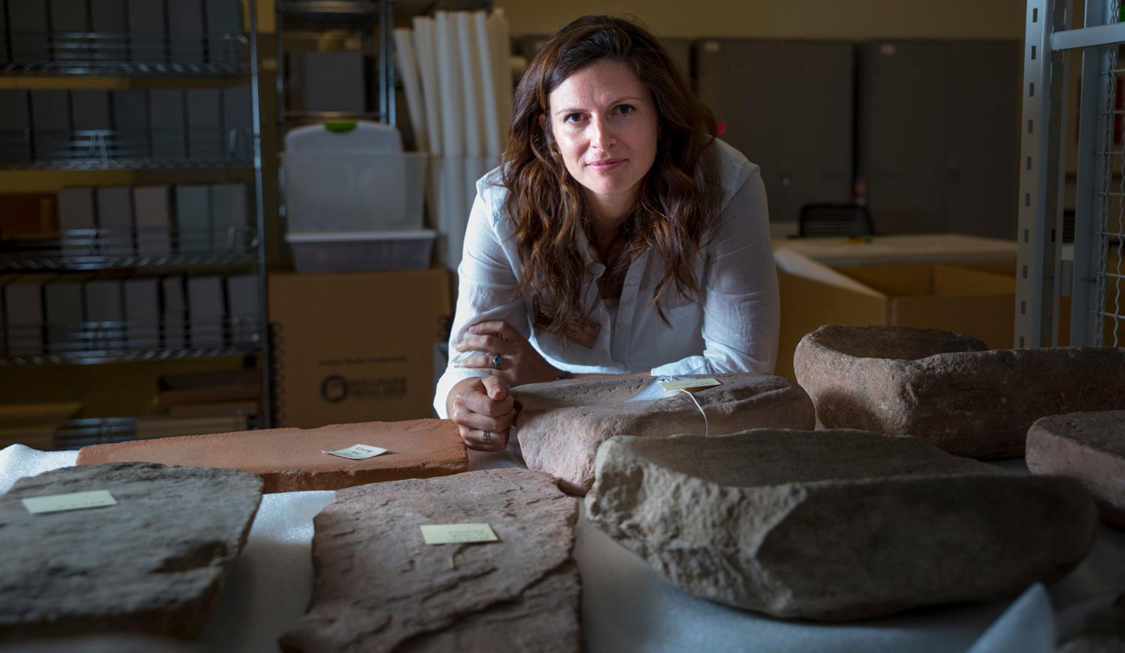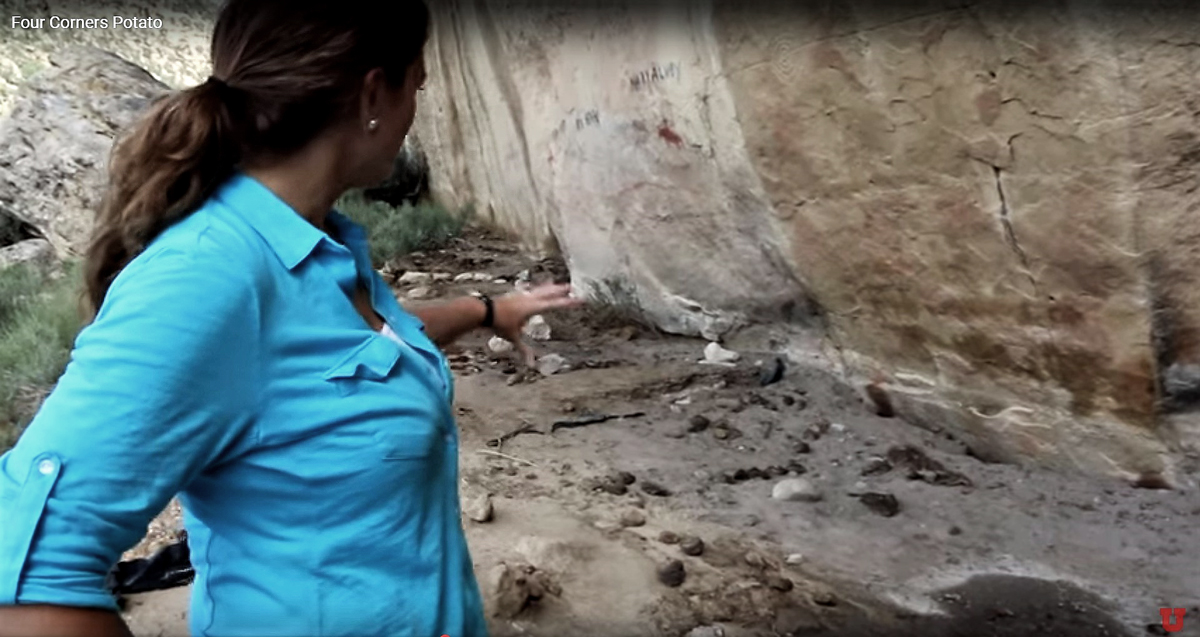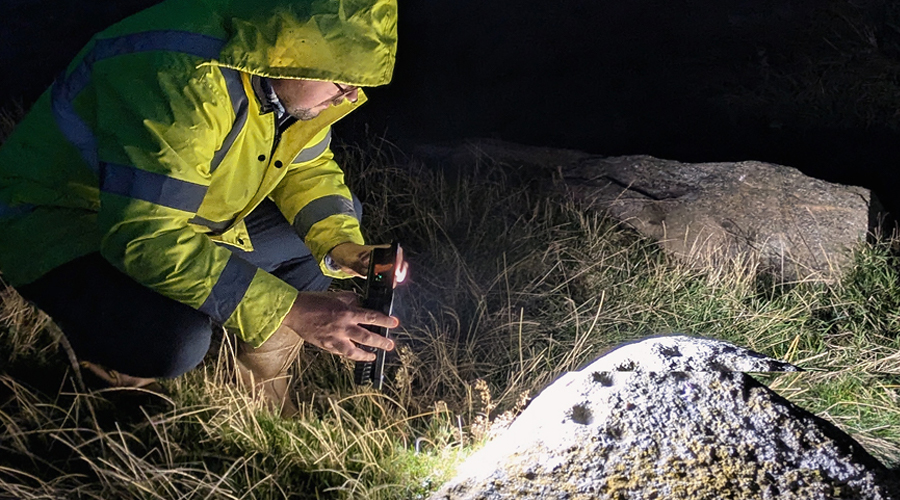


Earliest use of potatoes in North America
|
An article by Swati Bhasin on ibtimes.com - Utah's Potato Valley Was Feeding People 10,000 Years Ago - reports on the earliest documented use of potatoes in North America.

Lisbeth Louderback, assistant professor of anthropology and curator of archaeology at the Natural History Museum of Utah, stands behind large stone metates, the grindstones on which ancient Native Americans processed their food. She discovered microscopic potato granules on 10,900-year-old stone tools in Escalante, Utah. Image: University of Utah.
Researchers from the Natural History Museum of Utah and Red Butte Garden at the University of Utah have discovered potato starch residues in the crevices of a 10,900-year-old stone tool in Escalante, Utah. To early pioneer settlers, the Escalante area was known as the 'Potato Valley'.
The report, published online Monday in the Proceedings of the National Academy of Sciences journal, is probably the first archaeological study to identify a spud-bearing species native to the southwestern United States - Solanum jamesii - an important part of the ancient human diets.
Earliest use of potatoes in North Americahttps://t.co/wTSoCA6mzn #Utah #archaeology pic.twitter.com/Gn02TiJ5OM
— Bradshaw Foundation (@BradshawFND) July 4, 2017
The potatoes we eat today are varieties of a single species, Solanum tuberosum, domesticated in the South American Andes more than 7,000 years ago, and now seen here at a supermarket in Kiev, Ukraine. Image: Reuters/Gleb Garanich.
The study demonstrates that starch granules of Solanum jamesii extracted from ground stone tools establish wild potato use as early as 10,900 - 10,100 calendar years B.P. in southern Utah. This discovery is the earliest documented use of potatoes in North America.

Lisbeth Louderback on site. Image: University of Utah.
Lisbeth Louderback, assistant professor of anthropology at the University of Utah and curator of archeology at the Natural History Museum of Utah and senior author of the study, states that this potato could be just as important as those we eat today not only in terms of a food plant from the past but as a potential food source for the future.
The potatoes we eat today are varieties of a single species, Solanum tuberosum, domesticated in the South American Andes more than 7,000 years ago. The study did not clearly establish a link between S.tuberosum and S. jamesii, a wild species found in the shady shelter of oaks, sagebrush and piñon pines across the Four Corners region of the southwestern U.S.
The study highlights the use of S. jamesii, also called 'Four Corners Potato', by several Native American tribes - Apache, Hopi, Kawaik, Navajo, Southern Paiute, Tewa, Zia and Zuni. The tribal groups apparently used various cooking and processing techniques - boiling the potatoes, grinding them into flour or yeast, and mixing the potatoes with clay - to reduce bitterness.
The researchers collected evidence from ethnographic literature, stone tools, and modern gardeners to show that Utahans have used the species intermittently for over 10,000 years. They are now trying to find out if S. jamesii was the first example of a plant domesticated in the western U.S.
Note from the Editor: Interesting to see the rock art at the excavation site: looking forward to see further analysis of the art in relation to the archaeological research.
Visit the Rock Art of Moab, Utah:
http://www.bradshawfoundation.com/america/moab/index.php
COMMENTS |
|











